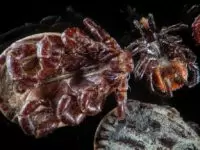
An Animal Psychologist is an expert in the behaviors and social relationships between animals within a community and to external biological entities (other species and relationships with humans).
What Does an Animal Psychologist Do?
Traditionally, research into the lives of animals has focused strongly on their biology, the environments that they inhabit and their relationships with, and to, humans. That has changed in the last few years as psychology has branched out into animal psychology. There are two major branches of animal psychology -practice and theory. In academic research, animal psychologists examine how animals interact with each another (communal groups, rival groups, predators and prey), their relationship(s) with the environment, and with human beings and our own development. They are closer to naturalists than to most biologists. Some researchers and academics may travel the world to observe animals in their natural habitats.
In practice, animal psychologists are finding work in zoos, on nature reserves and other animal parks to observe, study and promote animal welfare. Zoos, in particular, have adopted the findings of animal psychology by introducing enrichment programs such as toys and games, and simple problem-solving puzzles so animals may earn snacks. This has developed in the wake of concerns of animal mental health welfare. They are also finding work within the veterinarian sector, treating mental illness in animals alongside those who treat physical ailments. In each case, animal psychologists make observations and devise plan centering on the animal's psychological welfare.
Where Does an Animal Psychologist Work?
Animal psychologists will find work in one of three major areas; where they work will often depend on the nature of their degree, and how they tailor it to their intended future career path.
The first major area is in animal psychology practice. They will find work in zoos and aquariums, circuses, animal training centers, shelters and animal rescue centers and vets practices. These individuals work directly with animals, training them, studying them and engaging in courses of treatment. Some work for hire for homeowners training problem pets and helping animals get through psychological difficulties (for example, stress, anxiety and anger issues for pets that previously suffered abuse).
The second area is in academic research, either in developing treatments for practitioners or in understanding animal psychology for the benefit of conservation or promoting environmental practices. Researching animal behavior is a traditional area of naturalism, especially in relation to other species.
The third is in teaching, although at colleges at universities they may overlap with academic research. Teaching helps the veterinarians and researchers of the next generation to gain knowledge and build on existing research.
What Is the Average Animal Psychologist Salary?
The industry is still growing with no category with BLS. Animal psychologists require the same levels of education as a human psychologist, especially when offering therapy and psychology services direct to the patient. According to the BLS, psychologists earn a median salary of $82,180.*
Animal Psychology Jobs & Job Description
Animal psychology careers often combine elements of animal research and science with those of animal training. From studying an animal's actions to modifying its behavior, animal psychologists have the following job responsibilities:
- Observe animal behaviors and record findings
- Research and study typical and atypical animal behaviors, how they interact with each other and their environment as well as techniques for modifying animal behaviors
- Collect research findings and present via scientific papers, articles or speaking opportunities
- Conduct training programs to develop or maintain desired animal behaviors
- Teach or give lectures to students studying animal behavior
- Participate in laboratory studies of animal tissues, samples or behavior
- Collaborate with other scientists on research projects, including studying animals in their natural habitats
- Analyze animal interaction with humans or other animals in order to diagnose medical conditions or disorders such as anxiety or aggression
What Is the Job Demand for Animal Psychologists?
Specific data on animal psychology does not presently exist with BLS, but the demand for psychologists is expected to grow by 8% in the next ten years (2020-2030).*
What Are the Education Requirements to Become an Animal Psychologist?
As with psychologists who study and develop treatments for human behavior, animal psychologists are expected to follow a specific path of study that contains all the major elements of the role. High School students should focus on biology, but also on psychology where available. It is not necessary (and usually not possible) to study animal psychology at High School level. Math and geography are vital those students seeking to combine future studies will environmental studies. The environment can be a major impact on animal psychology. Some degree programs may require chemistry, physics and other hard sciences.
Typical undergraduate degree courses relevant to this career path are psychology, but the student should take minors and electives in relevant supporting areas such as biology, ecology and zoology. The student may swap this around, taking a major in those subjects while taking minors in psychology-related fields. There are some growing animal psychology degrees but not nearly enough as yet so a more conventional path is advisable. For most students, entry-level jobs require a bachelor's degree.
Students will find that senior research positions, project directorships, teaching and practices are open to those with a master's or PhD. Master's students will typically be expected to produce a dissertation while increasingly, this is an expectation on bachelor's degree students too. For PhD graduates, post-doc research is a vital part of your career and may be expected before you begin to practice.
Animal Psychology - Related Degrees
What Kind Of Societies and Professional Organizations Do Animal Psychologists Have?
Animal behavior is a growing area for conservation, for zoos to adhere to improvements in animal welfare, and vital to observing animal behaviors in the wild. The following organizations apply to this industry:
- International Association of Animal Behavior Consultants: offering professional certification to 700 member bodies around the world, it serves those who work directly with animals including pets, working animals and shelter animals
- Animal Behavior Society: This American organization promotes the research of animal behavior in a non-partisan. They adhere to rigorous scientific standards for the betterment of understanding animals
- International Society of Applied Ethology: Ethology is the study of animal behavior as they relate to other species, social organization and behaviors, relationships and the environment. This professional body promotes this area of research
*2020 US Bureau of Labor Statistics salary figures and job growth projections for psychologists reflect national data not school-specific information. Conditions in your area may vary. Data accessed September 2021.





